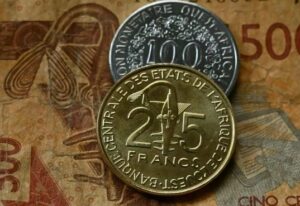10 African Countries Still Paying Colonial Tax to France
10 African Countries Still Paying Colonial Tax to France

Despite the official end of colonialism decades ago, several African nations continue to pay what is known as “colonial tax” — a system whereby former French colonies send substantial amounts of money to France. These payments, established during the colonial era, are upheld through agreements made at the time of independence, with France taking approximately 85% of the annual revenue from its former colonies. This arrangement keeps these countries financially burdened, forcing them to borrow back a portion of their own funds from France’s central bank under restrictive conditions. If they request more than 20% of what they have paid, their request can be rejected. France justifies the system by claiming it covers the cost of colonial-era infrastructure.
When an African leader challenges or refuses to comply with this tax, it often leads to political upheaval, including coups. Below are 10 African countries still trapped in this colonial tax system.
1. Benin
Benin, formerly known as Dahomey, achieved independence in 1960 but still sends payments to France. The funds are purportedly to cover the costs of infrastructure and services from the colonial period. Critics argue that this system deprives Benin of much-needed resources for domestic development, such as healthcare and education.
2. Burkina Faso
Like many others, Burkina Faso gained independence from France in 1960 but remains tied to the CFA franc system, a currency controlled by France. As a result, the country is required to deposit a significant portion of its reserves into the French central bank, continuing its financial dependency.
3. Côte d’Ivoire
Côte d’Ivoire, one of West Africa’s most prominent economies, remains heavily involved in the CFA franc system, making regular payments to France. This financial arrangement, critics say, continues to bind the country to its former colonial master, limiting its economic autonomy.
4. Guinea
Guinea boldly broke away from France’s financial arrangements in 1958, rejecting continued control over its resources. In retaliation, France withdrew its assets and destroyed much of Guinea’s infrastructure. While Guinea resisted colonial control, it has faced long-term challenges in fully escaping the system’s grasp.
5. Mali
Mali, one of the poorest and most landlocked countries in West Africa, is still part of the CFA franc system and continues to pay colonial taxes to France. These payments drain resources that could otherwise help improve the country’s economic situation and social services.
6. Niger
Niger, home to vast uranium resources crucial for France’s nuclear energy sector, remains locked in poverty despite its natural wealth. The country is part of the CFA franc system, sending a portion of its reserves to France’s central bank, leaving it struggling to harness its own wealth.
7. Senegal
While Senegal is known for its political stability, it too is bound by the colonial tax system and remains part of the CFA franc arrangement. Many critics believe this dependency on France hinders Senegal’s ability to achieve true economic independence and development.
8. Togo
Togo, a small yet resource-rich country, participates in the CFA franc system and continues to pay colonial taxes to France. This financial obligation keeps Togo tied to the economic interests of its former colonizer, limiting its economic freedom.
9. Cameroon
With a complex colonial history under both French and British rule, Cameroon continues to pay a colonial tax to France and is part of the CFA franc system. This dual colonial legacy deepens the nation’s dependency on France, leaving less room for local economic growth and development.
10. Chad
Chad, rich in oil and natural resources, remains one of the poorest countries globally. Despite its resources, much of Chad’s wealth is directed toward France through colonial tax payments and the CFA franc system, leaving the country struggling to achieve sustainable development.
TRENDING SONGS
 NPMA Appeals to Nigerian Government for Compensation After Lagos Market Fire
NPMA Appeals to Nigerian Government for Compensation After Lagos Market Fire
 Rest Every Four Hours, FRSC Issues Safety Guide for Fasting Motorists
Rest Every Four Hours, FRSC Issues Safety Guide for Fasting Motorists
 NNPC Boss Ojulari Bags UK Energy Institute Fellowship
NNPC Boss Ojulari Bags UK Energy Institute Fellowship
 Shock in Anambra: Bride Disappears Moments Before Wedding
Shock in Anambra: Bride Disappears Moments Before Wedding
 Nigerian Woman Returns ₦330 Million Accidentally Credited to Her Account
Nigerian Woman Returns ₦330 Million Accidentally Credited to Her Account
 APC Don Reach Morocco?’ VeryDarkMan Reacts to Seyi Tinubu Poster
APC Don Reach Morocco?’ VeryDarkMan Reacts to Seyi Tinubu Poster
 Bride Breaks Down in Tears as Wedding Meals Were Kept Secretly While Guests Go Home Hungry
Bride Breaks Down in Tears as Wedding Meals Were Kept Secretly While Guests Go Home Hungry
 Odogwu by Day, Robber by Night: How Marriage Joy Turned Into Tragedy
Odogwu by Day, Robber by Night: How Marriage Joy Turned Into Tragedy
 Nigerian Officials Allegedly Pocket N4–6B Weekly Through Smuggling Cartels at Seme–Badagry Border
Nigerian Officials Allegedly Pocket N4–6B Weekly Through Smuggling Cartels at Seme–Badagry Border
 Ahmad Yerima: Naval Officer to Face No Sanctions After Clash with Wike – Matawalle
Ahmad Yerima: Naval Officer to Face No Sanctions After Clash with Wike – Matawalle
Share this post with your friends on ![]()













